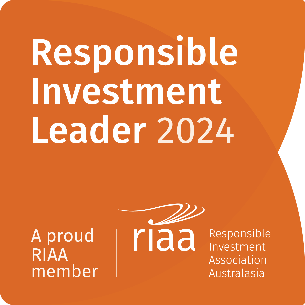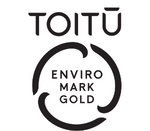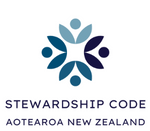The Fund invests into the Wellington Global Impact Bond Fund, managed by Wellington Management Funds (Ireland) plc (Wellington Management). Through the Fund’s investments the aim is to improve access to, and the quality of, basic life essentials, reduce inequality and mitigate the effects of climate change. The Fund targets select high impact issuers. The Fund is led by Portfolio Manager Campe Goodman, who is backed by a highly experienced investment team with a strong track record, and a firm with over US$1 trillion in assets under management globally.
To watch a webinar which explains the fund’s strategy, investment approach, and underlying ESG processes, please click here.
Fund Outline
| Investment Objective | The Fund aims to deliver long-term total returns in excess of the index by investing in a diverse portfolio of global bonds. |
| Strategy |
The Fund invests into the Wellington Global Impact Bond Fund, managed by Wellington Management. Wellington Management seeks to understand the world’s social and environmental problems and to identify and invest primarily in debt issued by companies and organisations that they believe are addressing these needs in a differentiated way through their core products, services and projects. The Wellington Global Impact Bond Fund aims to improve access to, and the quality of, basic life essentials, reduce inequality and mitigate the effects of climate change. They seek to identify securities which it believes fall into three primary impact categories: life essentials, human empowerment and the environment. Within these categories the Fund will invest across “Impact Themes” including, but not limited to the following:
While the underlying Wellington Fund tends to be fully invested in global bonds, when there are few compelling investment opportunities the Fund may hold some cash or cash equivalent securities. |
| About Wellington Management | Wellington Management is a globally integrated investment management firm with US$1 trillion in assets under management worldwide across a broad range of asset classes and approaches (as at 31 December 2021). They have been providing innovative investment solutions to clients for more than 85 years. |
| Limits |
0-100% Global fixed interest and cash. (sectors/issuers: government, quasi-sovereign, agency, supranational, municipal, corporate, mortgage and securitised) 0-20% Emerging markets. |
| Benchmark | Bloomberg Global Aggregate Index in NZD, 100% hedged to NZD. |
| Hedging | Permitted range 0-100% |
| Structure | Portfolio Investment Entity (PIE) registered |
| Suitability | We recommend a minimum investment period of at least 5 years. |
| Fund Details | Date of Establishment: 25 February 2022 |
| Manager: Devon Funds Management Limited | |
| Supervisor: The New Zealand Guardian Trust Company Limited | |
| Auditor: PricewaterhouseCoopers | |
| Minimum Amount for: | Initial Investment - $10,000 |
| Additional Investment - $1,000 or $100 per quarter with a regular savings plan | |
| Withdrawal - $2,000 | |
| Fees | Entry, Exit & Switch Fees - Nil |
| Management Fee – 0.34% p.a. plus GST | |
| Performance Fee - Nil | |
| Trustee, custody and administration fees - Capped at 0.25% p.a. plus GST | |
| Other Fund expenses - Abnormal or one-off costs, brokerage, all taxes that may be incurred by the Fund | |
| Distribution | Distributions will be paid quarterly, at the Manager’s discretion. |
| Applications & Withdrawals | Daily, by 2.30pm (NZ time) to receive that COB price. |
| Unit pricing | Available here |
Please click here for the fund Fact Sheet
Please click here for the fund Monthly Report
Sustainable Objective
Wellington seeks to understand the world’s social and environmental challenges and to identify and invest in debt issued by companies and organizations that it believes addresses these challenges in a differentiated way through their products, services and projects. Through the Fund’s investments, the Investment Manager seeks to improve access to, and quality of, basic life essentials, reduce inequality, and mitigate the effects of climate change.
Investment Policies
The Investment Manager will actively manage the Fund, seeking to outperform the Bloomberg Barclays Global Aggregate Hedged to NZ dollar Index (the “Index”) and achieve the objectives primarily through investment in investment grade rated global fixed income securities issued by organisations whose core business or projects, in the opinion of the Investment Manager, address some of the world’s major social and environmental challenges.
Wellington seeks to identify securities which it believes fall into three primary impact categories: life essentials, human empowerment and the environment. Within these categories the Fund will invest across "Impact Themes" including, but not limited to the following:
- Life Essentials: affordable housing, clean water and sanitation, health, sustainable agriculture and nutrition.
- Human Empowerment: digital divide, education and job training, financial inclusion, safety and security.
- Environment: alternative energy, resource efficiency and resource stewardship.
The Investment Manager aims to select securities which they believe will offer an attractive return profile over the long term, for example, issuers whose core products, services and projects align with any one or a combination of different Impact Themes, whose social and/or environmental impact is quantifiable and where fundamental analysis supports a long-term return. The Fund may have greater exposures to some Impact Themes than others. This is because there can be more impact investment opportunities within certain Impact Themes like affordable housing, health and resource efficiency.
The Wellington team relies on a bottom-up process for identifying and analysing candidate issuers for investment. In defining the opportunity set, the Investment Manager takes into account both quantitative and qualitative considerations to fulfil each of the three impact criteria:
- Materiality: Impact activity must be central to the issuer. In the case of use-of-proceeds bonds, proceeds must be used for an activity that the Investment Manager deems to be related to one of its Impact Themes.
- Additionality: The Investment Manager evaluates each issuer's value proposition, the specific needs it addresses, competitor product and services, and the degree to which alternative solutions already exist.
- Measurable key performance indicators (KPIs): The impact case must be quantifiable. The Investment Manager uses issuer reports and proprietary models to develop individualized KPIs to understand the nature of the impact generated by the issuer, its alignment with the Fund’s Impact Themes, and progress over time.
After an issuer or issue meets the above impact criteria, only those that the Investment Manager believes have the most attractive risk/return profile and diversification properties are selected for inclusion in the portfolio.
Specifically, the portfolio construction process combines a top-down sector strategy with bottom-up fundamental credit research. The top-down aspects of the Investment Manager's process include setting desired risk levels, including credit risk and duration positioning, and determining sector-relative value.
The Investment Manager believes identifying investment opportunities which generate a positive impact requires bottom-up fundamental research. However, the Fund also uses screening to ensure certain investments are excluded. These include issuers with involvement in the following industries: tobacco, firearms, defense, nuclear, coal, petroleum, adult entertainment, gambling and alcohol as these are issuers the Investment Manager believes run counter to, or undermine, the Fund’s sustainable investment objective. In select instances, the Investment Manager may invest in use-of-proceeds bonds within the energy and utilities industries, where proceeds are being allocated to specific projects that meet the Investment Manager's impact criteria and/or that support the transition to a lower carbon economy.
Given the emphasis on investing in securities where the proceeds are addressing social or environmental challenges, the assessment of Sustainability Risks through the analysis of environmental, social and governance ("ESG") factors is an integral part of the Fund’s investment process as, in the Investment Manager’s view, Sustainability Risks can materially affect an issuer's financial performance and competitiveness.
The Investment Manager considers ESG factors as part of its broader analysis of individual issuers (including with regards to Sustainability Risk assessment), using inputs from the team of ESG analysts to help identify global best practices, prepare for company engagement and collaborate on new research inputs. The factors which will be considered by the Investment Manager will vary depending on the security in question, but typically include ownership structure, board structure and membership, capital allocation track record, management incentives, labour relations history and climate risks. The Investment Manager believes that issuers that have strengths in these areas typically have more stable credit fundamentals and can create competitive advantages by reducing material Sustainability Risks which may negatively impact their competitors.
Wellington believes that the Fund will be exposed to a broad range of Sustainability Risks. In assessing these risks, the Investment Manager draws upon a wide variety of internal (such as research by its team of global industry analysts) and external (such as company meetings) research to assess any potential impact on the value of the assets over the time horizon of the Fund. Whilst Sustainability Risks vary from security to security, the following are particularly relevant to the Fund:
a) Measurable positive impact not being achieved or having impact activities discontinued: From time to time an issuer may decide to discontinue the activities which the Investment Manager deemed meet the impact criteria, and/or may repurpose the proceeds of a bond issue, or return capital to investors if such activities will no longer be continued. It is also possible that the issuer may fail to provide sufficient progress towards measurable impact or does not adequately measure and report on the impact activities. Any of these situations arising could lead to a bond issue falling outside of the Investment Manager's impact framework at which point the security would become a candidate for sale.
b) Exposure to negative externalities: The Investment Manager's impact analysis focuses on the use of proceeds of specific bond issues and other activities of the issuer. The Investment Manager seeks to understand how other activities of the issuing organization, or parent organization, may cause negative environmental or social harm that could offset the positive aspects of the impact activity (“negative externalities”). The Investment Manager seeks to understand and mitigate the risk of exposure to negative externalities. Exposures to negative externalities can arise and if deemed significant by the Investment Manager could lead to an investment becoming a candidate for sale from the portfolio.
Through interactions with issuers' management teams, the Investment Manager seeks a better understanding of these and any additional underlying Sustainability Risks, incorporating them into its assessments of an issuer's outlook, and looking to avoid investments in assets where the likelihood of a Sustainability Risk event is under-represented in the price of the asset. The Investment Manager believes that active engagement with issuers can support changes in corporate behaviour and actions that benefit the Fund and help mitigate Sustainability Risks. The Investment Manager also consults its ESG analysts for insight on how Sustainability Risks may differ between issuers within regional and sector peer groups.
.png)





